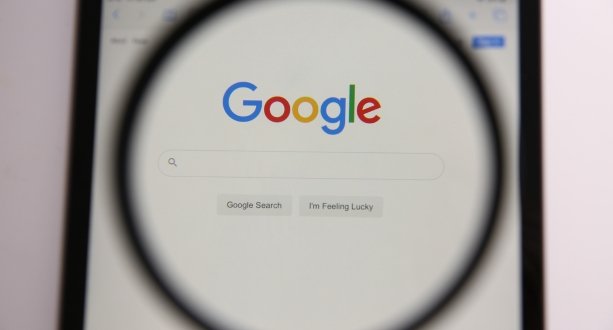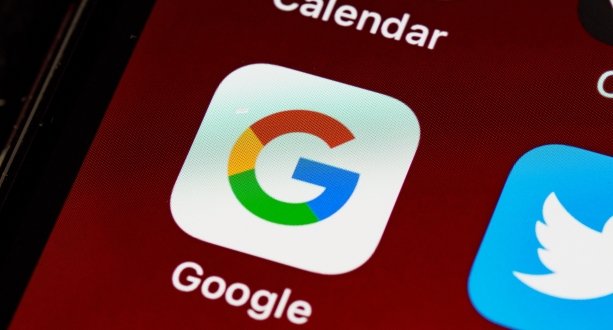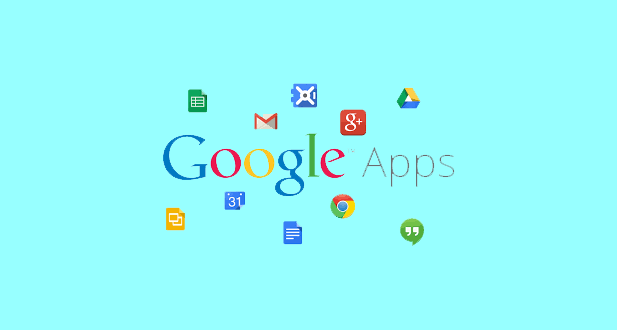What are the free versions of gmail google apps business?
Gmail is a popular email service offered by Google. It is available to users for free, and it offers a variety of features that make it a great choice for personal and business use. In addition to the free version of Gmail, Google also offers a paid version called Google Workspace (formerly known as G Suite).
Google Workspace is a collection of productivity tools designed for business use. It includes Gmail, as well as other tools like Google Drive (cloud storage), Google Calendar, and Google Docs (a word processor). Google Workspace also includes advanced security features and administrative controls that are important for businesses.
The free version of Gmail is suitable for personal use, but it has limitations compared to the paid version. For example, the free version of Gmail has a smaller storage limit and fewer features than Google Workspace. Additionally, the free version of Gmail is supported by ads, while Google Workspace is ad-free.
Google Workspace offers several pricing plans, depending on the features and number of users. The basic plan includes Gmail, Google Drive, Google Calendar, and Google Meet (video conferencing), while the higher-tier plans include additional features like advanced security and compliance controls, and more storage.
In general, Google Workspace is a good choice for businesses that need a robust set of productivity tools and advanced security features. The free version of Gmail is a good choice for personal use or for small businesses with limited needs. Regardless of which version of Gmail you choose, it is a reliable and feature-rich email service that is trusted by millions of users around the world.
What is the paid versions gmail google apps business?
Gmail is a popular email service provided by Google that allows users to send and receive emails for free. However, Google also offers a paid version of Gmail, called Google Apps for Business, which provides additional features and benefits.
Google Apps for Business is a suite of web-based productivity tools that includes Gmail, Google Drive, Google Calendar, Google Docs, and more. This suite is designed to help businesses streamline their operations and improve collaboration among their employees.
The paid version of Gmail offers a number of advantages over the free version. For example, it provides users with a professional email address that uses their own domain name, rather than the generic Gmail address. This helps to establish a more professional image for the business and can help to build credibility with customers and clients.
Another benefit of the paid version of Gmail is that it provides users with more storage space for their emails and attachments. While the free version of Gmail offers 15 GB of storage space, the paid version offers unlimited storage, which can be particularly useful for businesses that deal with large volumes of email and other digital files.
The paid version of Gmail also offers advanced security features, such as two-factor authentication and the ability to set up custom security policies for the business. This can help to protect sensitive information and prevent unauthorised access to the company’s email accounts.
In addition to these benefits, the paid version of Gmail also provides users with access to Google’s suite of productivity tools, which can help to streamline business operations and improve collaboration among employees. For example, Google Docs allows multiple users to edit and collaborate on the same document in real-time, which can be particularly useful for teams working on projects together.
The paid version of Gmail, as part of Google Apps for Business, offers a range of features and benefits that can help businesses to operate more efficiently and effectively. While the free version of Gmail may be sufficient for personal use, businesses may find that the additional features and capabilities of the paid version are well worth the investment.
Advantages of gmail google apps for business
1. Cloud-Based Services: One of the significant advantages of Gmail and Google Apps for Business is that they are cloud-based services. This means that users can access their emails, documents, and files from anywhere in the world, as long as they have an internet connection. This feature is especially beneficial for remote teams, as it allows them to work together and share information seamlessly.
Moreover, cloud-based services mean that there is no need to worry about storage capacity or data loss. All data is automatically backed up, and the risk of losing information due to hardware failure or other issues is significantly reduced.
2. Collaboration: Another advantage of Gmail and Google Apps for Business is their collaboration features. Google Docs, Sheets, and Slides, for example, allow multiple people to work on the same document simultaneously. This can greatly enhance productivity, as teams can work together in real-time without having to worry about version control or sending files back and forth.
Gmail’s integration with other Google Apps also makes it easier for teams to collaborate on projects. Users can quickly share documents, spreadsheets, and presentations through email, and all changes made to these files are automatically synced in real-time.
3. Customization: Gmail and Google Apps for Business can also be customised to meet the unique needs of each organization. Users can create custom email templates, signature blocks, and labels, for example, which can help streamline communications and make it easier to manage incoming messages.
Moreover, Google Apps for Business can be customized to match an organization’s branding. Companies can add their logos and color schemes to various Google Apps, such as Google Docs and Sheets, to create a more cohesive look and feel.
4. Security: Security is a significant concern for any organization, and Gmail and Google Apps for Business are designed with security in mind. Google uses industry-standard encryption to protect all data, and two-factor authentication can be enabled to add an extra layer of security to user accounts.
Google Apps for Business also includes several tools to help organisations manage security, such as a mobile device management (MDM) solution that allows companies to remotely wipe data from lost or stolen devices.
5. Cost-Effective: Finally, Gmail and Google Apps for Business are cost-effective solutions for organisations of all sizes. Gmail is free to use for personal accounts, and Google Apps for Business is available for a relatively low monthly fee per user. This makes it a more affordable option than traditional email solutions, which often require significant upfront investment and ongoing maintenance costs.
Additionally, Google Apps for Business can help companies save money by reducing the need for physical storage and paper documents. With Google Drive, for example, users can store all of their files and documents online, eliminating the need for expensive file servers and physical storage devices.
What is difference between free paid versions gmail google apps business
Gmail is one of the most popular email services in the world. It is a free email service provided by Google that allows users to send and receive emails, organize their inbox, and access their email from anywhere with an internet connection. In addition to its free version, Google also offers a paid version called Google Apps for Business. While the free version of Gmail is sufficient for personal use, businesses and organizations may find the paid version more suitable for their needs. In this article, we will explore the differences between the free and paid versions of Gmail and Google Apps for Business.
1. Email storage: One of the main differences between the free and paid versions of Gmail is the amount of email storage available. The free version of Gmail comes with 15 GB of storage space, which is shared across Google Drive, Gmail, and Google Photos. In contrast, the paid version of Google Apps for Business provides users with unlimited storage space for their emails, files, and photos.
2. Custom domain: Another difference between the free and paid versions of Gmail is the ability to use a custom domain name. With the paid version of Google Apps for Business, users can use their own domain name for their email addresses. This is particularly useful for businesses and organizations that want to maintain a professional image.
3. Security features: The paid version of Google Apps for Business offers enhanced security features that are not available in the free version of Gmail. These include two-factor authentication, data loss prevention, and mobile device management. These features help to protect sensitive information and prevent unauthorized access to accounts.
4. Customer support: Another difference between the free and paid versions of Gmail is the level of customer support provided. While the free version of Gmail offers limited customer support, the paid version of Google Apps for Business provides 24/7 phone and email support to users.
5. Collaboration tools: The paid version of Google Apps for Business offers a range of collaboration tools that are not available in the free version of Gmail. These include shared calendars, video conferencing, and collaborative document editing. These tools can help to improve productivity and streamline communication within a team or organization.
6. Advertisements: The free version of Gmail displays advertisements to users, which can be distracting and take up valuable screen space. In contrast, the paid version of Google Apps for Business does not display any advertisements, providing a cleaner and more professional email experience.
7. Custom branding: The paid version of Google Apps for Business allows businesses and organizations to customize their email interface with their own branding, logos, and colors. This can help to create a more cohesive brand image and improve the overall user experience.
8. Cost: Finally, the most significant difference between the free and paid versions of Gmail is the cost. The free version of Gmail is completely free to use, while the paid version of Google Apps for Business starts at $6 per user per month. While this may seem like a significant expense, the additional features and benefits of the paid version.
Conclusion:
The main difference between Gmail and Google Apps for Business is that the latter is designed for businesses and provides more advanced features and functionality, as well as greater control over user accounts and data. For example, Google Apps for Business allows administrators to set up custom email addresses for their employees using their own domain name, and to manage user access to company data.
In summary, while Gmail is a free email service that is suitable for personal use, Google Apps for Business is a paid service that provides more advanced features and functionality for businesses looking to enhance communication, productivity, and collaboration among employees.
Frequently Asked Questions:
Google Apps for Business provides more features and functionality than the free version of Gmail, including custom domain email addresses, advanced security features, and increased storage space. It also includes a suite of productivity tools to help businesses streamline their workflow.
Google Apps for Business has different pricing plans depending on the size of your organization and the features you need. The basic plan starts at $6 per user per month.
Yes, you can use your own domain with Gmail by signing up for Google Workspace, which is the new name for Google Apps for Business.
Gmail provides 15 GB of free storage, while Google Apps for Business provides 30 GB per user for the basic plan.




